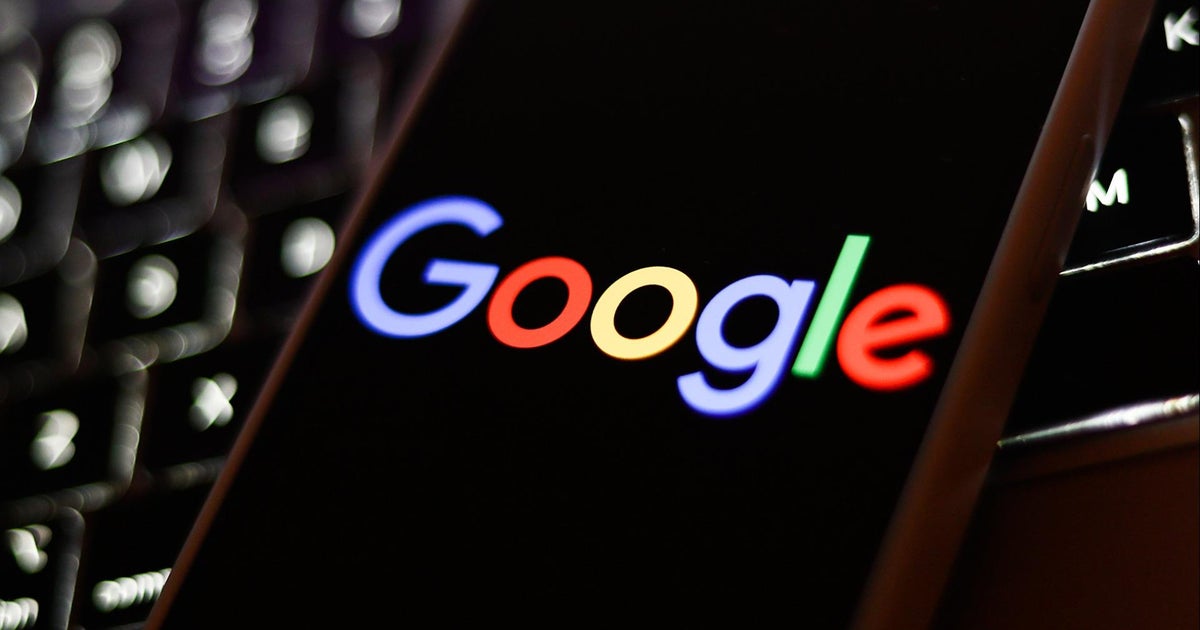CBS News
What is a VPN? And why should you use one?

Getty Images/iStockphoto
If you use the internet, you might be surprised to learn that you’re putting your privacy at risk. Don’t quit the web just yet, though. You can spend as much time as you want browsing, checking out the latest deals, or chatting with friends. But no matter how innocent the thing you’re doing online is, you should know that there are still snoops around who might want to see what you’re up to.
It’s not just because they’re nosy. It’s because they want to steal your private information. So if you’re someone who’s always online, it’s a good idea to be proactive and mask your online steps and activity. There’s a super easy way to do that, and it doesn’t require you to empty your bank account. It’s called a VPN, and you can have one up and running in minutes.
A “virtual private network,” or VPN, is one of the most reliable ways to cover your online tracks. It doesn’t matter if you just head to YouTube to listen to your favorite old ’80s tracks or if you eBay nostalgic toys from your childhood. If you don’t want others to know what you’re up to (and who does?) one of the best VPN services has your back. It can help you browse securely and privately while keeping personal details under wraps, and safe from prying eyes.
One of our favorites is ExpressVPN, and you can get it starting at just $6.67 monthly. It boasts over 3,000 servers in 94 countries and has an extensive suite of security features that you can rely on to keep you safe.
Our top VPN choice: ExpressVPN
ExpressVPN
Pros:
- Over 3,000 servers in 94 countries
- Extensive security features
- User-friendliness and excellent customer service
- Great support for eight simultaneous connections
- Can unlock geo-blocked content
Cons:
- No dedicated IP address or port forwarding
- Pricier VPN option for smaller budgets
How does a VPN work?
So how does a VPN work, anyway? To put it simply, it’s kind of like a private tunnel connecting your device (a computer, smartphone, tablet, or whatever you’re using) to the internet. Instead of exposing you to the wilds of the online ecosystem, it lets you bypass other public connections and cradles you in a protective bubble.
As you travel through this secure tunnel, a VPN shields your data and masks your identity by altering your IP address. The result? Your online footprints are disguised. Whether it’s about keeping your online activities private, protecting your sensitive information from criminals, bypassing geo-restrictions, or blocking your internet service provider (ISP) from spying on your browsing history, a VPN is an incredibly valuable tool that anyone who goes online can benefit from.
Those are the basics in terms of why you might want to use a VPN. But there are plenty of other, more specific reasons that make it worth your while. The number one reason, as we’ve made quite clear already, is privacy. Even if you’re just cruising around on TikTok, playing with Neopets (yeah, we said it), shopping on Amazon, or writing an email, it’s no one else’s business what you’re up to. So don’t make it any simpler for others to ogle at your traffic and potentially snatch important information from your online sessions.
The benefits don’t end there. If you routinely use free public Wi-Fi, your identity could be at risk. Cybercriminals could be siphoning your personal information, including your passwords and bank details. A VPN shields your data, turning it into a code that’s practically indecipherable to any unwanted onlookers. That way you can use those free hotspots with not-so reckless abandon.
And on a more frivolous note, maybe you want to see content that isn’t available on a streaming service in your country. A VPN can make your device appear to be in a different location, unlocking the door to a trove of geo-blocked content. Then you can watch what you want. As you can see, a VPN is your super-shield and unlocking companion that keeps the internet safe and unrestricted so you can browse how you want.
We’ll also offer a few suggestions that you can’t go wrong with — because there are plenty out there to choose from.
How does a VPN protect your privacy?
Using a VPN is a must if you want to safeguard your privacy online. That’s just how things are nowadays. But how does it do it? It’s simple. It creates a virtual network that tunnels your internet traffic elsewhere, with a different IP address and a different location, essentially.
To understand this better, think about going online without a VPN as walking around with a signboard detailing your personal life. Creepy, right?
The reality is, that without a VPN, anyone can see your internet activities and may even sell this information to advertisers, who then bombard you with targeted ads. A VPN renders your online actions invisible to any would-be eavesdroppers.
Bad actors are on the lookout for personal information, like your passwords or bank details. It’s as if you’re at a public park, casually discussing your private matters, unaware of the stranger sitting on the next bench, eavesdropping on your conversations.
But using a VPN is like having that conversation in a soundproof room, where your information is turned into a secure code that’s nearly impossible for listeners to decipher. It’s not foolproof — nothing is — but when you’re routing your traffic through different locations, the risks are considerably lessened.
By using a VPN, you take control of your online privacy. We’ve got so little of it these days, you know. Best to protect it while you can.
Our runner-up VPN choice: NordVPN
NordVPN
Pros:
- Wide range of security features
- Speedy browsing
- Double VPN adds an extra encryption layer
- Custom features for tech-savvy users
- Affordable subscription pricing
Cons:
- Higher subscription tiers can be expensive
- User interface could use some improvements
How does a VPN help keep you secure online?
When you’re online, you’re constantly sending out information. Maybe you’re typing in a password to log into an account, maybe you’re entering your credit card details to make a buy, or you’re just sending an email to a friend. That’s how it normally goes on the open internet.
When you use a VPN, it encrypts, or scrambles, your data, so even if someone were to intercept it, all they’d see is a bunch of gibberish. It’s a vital layer of security that helps to keep your personal information, well, personal.
Unfortunately, public Wi-Fi networks are usually the last thing you want to use without a VPN. Digital thieves are always on the lookout for easy targets to steal sensitive information from, like passwords, bank details, or personal emails. Like the Joker once said, some people just want to watch the world burn.
But with a VPN, your data is safe. A VPN is the most effective way to secure your online activities and safeguard all that important data. It’s affordable too, so you can relax knowing everything’s handled for a few bucks a month, typically. There are plenty of options to choose from, so you can find one that works best for you.
How does a VPN help you bypass online restrictions?
Have you ever been excited about a new TV series or movie, only to find that it’s not available in your region? That’s geo-blocking for you. It’s a system that restricts your access to content based on your geographical location. This is where a VPN can swoop in to save the day. A VPN allows you to virtually teleport your device to a different country, tricking these geo-restrictions. With a VPN, you get the power to access a treasure trove of content that was previously out of reach, which of course expands your streaming options in a big, big way.
In the same way, a VPN can be your key to bypassing web censorship. This could be particularly helpful if you travel to, or live in, countries where internet use is heavily monitored and restricted. It’s like being in a library where the librarian has decided to lock away certain books. A VPN gives you the master key to open those locks, and voila, the entire library is at your disposal.
Essentially, a VPN lets you connect to servers in locations where the content isn’t censored, granting you access to the free, open internet. This is not just about accessing your favorite social media sites or streaming platforms, but also about maintaining your right to information and freedom of speech. After all, in an age where information is power, having access to the internet without restrictions is invaluable, and a VPN gives you just that.
Top budget VPN choice: Surfshark
Surfshark
Pros:
- Extremely affordable
- Fast browsing speeds
- Added layer of encryption for extra security
- Innovative Nexus feature offers server browsing
- Great option for multiple simultaneous connections
Cons:
- Connections can drop occasionally
- Kill switch can sometimes glitch out (but not often)
How does a VPN keep sites from tracking you and serving targeted ads?
Your online behavior, including searches and website visits, is tracked by companies, mainly for advertising purposes. Your data, the digital breadcrumb trail you leave behind, is a gold mine for marketers looking to tailor their ads to you. If you see a product on Amazon and interact with it, chances are you’re going to start seeing ads for it everywhere you go. And those Instagram ads you keep seeing? You’re getting those for a reason.
This is where a VPN can make a big difference. When you use a VPN it masks your IP address. That’s one of the key ways you’re tracked online. Your IP address is like your home address in the digital world, but a VPN gives you a new one, making it harder for these advertising companies to follow your online footsteps. Furthermore, it encrypts your data, making your browsing history a lot harder to access.
By doing this, a VPN can disrupt the targeting process, reducing the number of targeted ads coming your way. So, with a VPN, you can browse in peace, knowing you have an extra layer of privacy protection against intrusive tracking and targeted advertisements. It puts you back in control of your online experience, so it can be about you, and not about those who are trying to sell to you. Because we’ve seen enough ads in all of our lifetimes.
Why should I use a VPN if I don’t have anything to hide?
Many people associate VPNs with people who do shady things online. But the reality is, a VPN is just as useful, and crucial, for the everyday internet user, even if they’re not involved in anything illicit. Why? Because at its core, a VPN is about safeguarding your online privacy and security, which is crucial for everyone. A VPN shields your online activities from prying eyes and ensures that your personal information stays personal.
Without a VPN, your ISP can see what websites you’re visiting, how long you’re staying on them, what you’re downloading, and more. Even if you’re just surfing the web, streaming videos, or shopping online, this lack of privacy can feel uncomfortable. Plus, in some cases, ISPs can sell your browsing data to advertisers, leading to a bombardment of targeted ads.
Installing a VPN ensures that your ISP can’t track your every move, giving you the freedom to surf the web without feeling like someone’s looking over your shoulder. Remember, using a VPN isn’t about hiding illegal activities, it’s about protecting your right to privacy in a world where this fundamental right is increasingly under threat. In a nutshell, VPNs are for everyone who values their privacy and security online, which, in this digital era, should ideally be everyone.
CBS News
One year after Oct. 7 attack, the toll on civilians remains high

Watch CBS News
Be the first to know
Get browser notifications for breaking news, live events, and exclusive reporting.
CBS News
Open: This is “Face the Nation with Margaret Brennan,” Oct. 6, 2024

Watch CBS News
Be the first to know
Get browser notifications for breaking news, live events, and exclusive reporting.
CBS News
Kamala Harris will speak with “60 Minutes” tomorrow. Here’s what to know for the interview.

Voters will get the chance to hear from Vice President Kamala Harris on Monday as she presents her case for why she should be president in a “60 Minutes” election special.
For decades, “60 Minutes” has featured both Republican and Democratic nominees for presidents, but this year, former President Donald Trump backed out after previously indicating he would be on the show. Correspondent Scott Pelley, who’d been set to interview Trump, will instead travel to Arizona’s Maricopa County, home to more than 60% of Arizona’s voters and a critical battleground in a key swing state.
One thing is certain about the election; with the U.S. deeply involved in both the wars in Ukraine and the Middle East, whoever wins on Nov. 5 will become a wartime president.
What Harris will discuss
Israel’s war started one year ago after Hamas launched a surprise terror attack and correspondent Bill Whitaker will discuss the ongoing war with Harris.
Harris will also discuss the economy, immigration, her record as vice president and the differences between herself and Trump.
Democratic vice presidential candidate Gov. Tim Walz will also appear.
Whitaker joined the Democratic ticket on the campaign trail this week to gain insight into their platform’s priorities and values, and what the candidates believe voters should know.
Why Trump pulled out of the “60 Minutes” interview
Leading up to the candidate hour, Trump, through campaign spokespeople, was the first candidate to accept the “60 Minutes” request to be interviewed for the special, according to CBS News. It had been agreed that both candidates would receive equal time during the broadcast.
Trump last sat down with 60 Minutes in 2020. He walked out during the interview with Lesley Stahl. Trump referenced the incident on Tuesday night at a Milwaukee press conference when asked about his decision not to participate in the Oct. 7 “60 Minutes” election special.
“Well, right now, I went to – they came to me and would like me to do an interview, but first I want to get an apology, because the last time I did an interview with them, if you remember, they challenged me on the computer,” Trump said. “They said the ‘laptop from hell’ was from Russia, and I said it wasn’t from Russia. It was from Hunter, and I never got an apology, so I’m sort of waiting. I’d love to do ’60 Minutes.’ I do everything.”
The Republican nominee for president emphasized that he felt he was owed an apology from “60 Minutes.”
“Let’s see if they do it. I wouldn’t mind doing 60,” Trump continued. “I’ve done ’60 Minutes’ a lot.”
In a statement on Tuesday, Trump campaign communications director Steven Cheung said that Trump’s team had not agreed to an interview.
“Fake News,” Cheung said in a post on X. “60 Minutes begged for an interview, even after they were caught lying about Hunter Biden’s laptop back in 2020. There were initial discussions, but nothing was ever scheduled or locked in. They also insisted on doing live fact checking, which is unprecedented.”
Previous Trump, Harris appearances on 60 Minutes
Trump previously sat down with “60 Minutes'” Mike Wallace in 1985, Pelley in 2015 and Lesley Stahl twice in 2016, first in July of that year and then again in November of 2016. He also spoke with Stahl again in 2018 and 2020.
Harris previously sat down with Whitaker last year. She also was interviewed by Norah O’Donnell, “CBS Evening News” anchor and “60 Minutes” contributing correspondent, in 2020.












